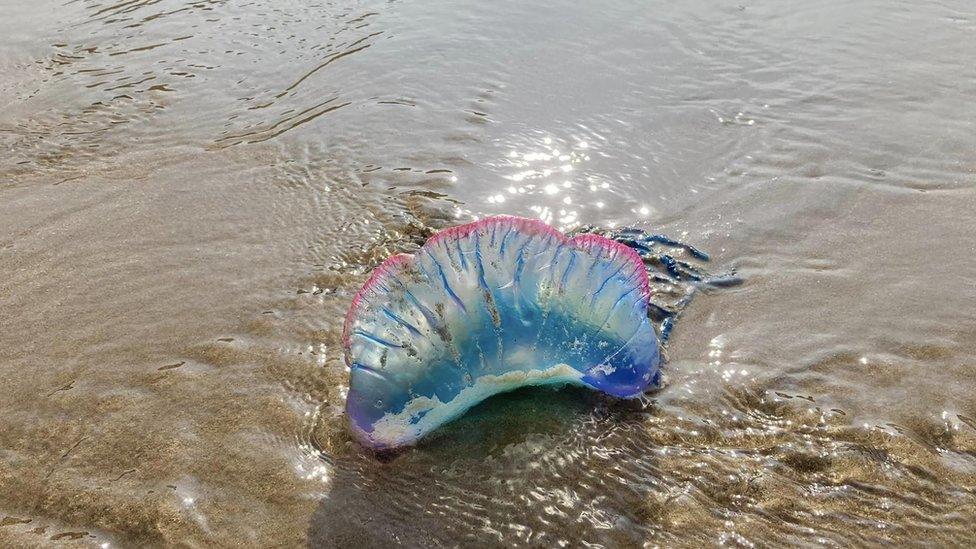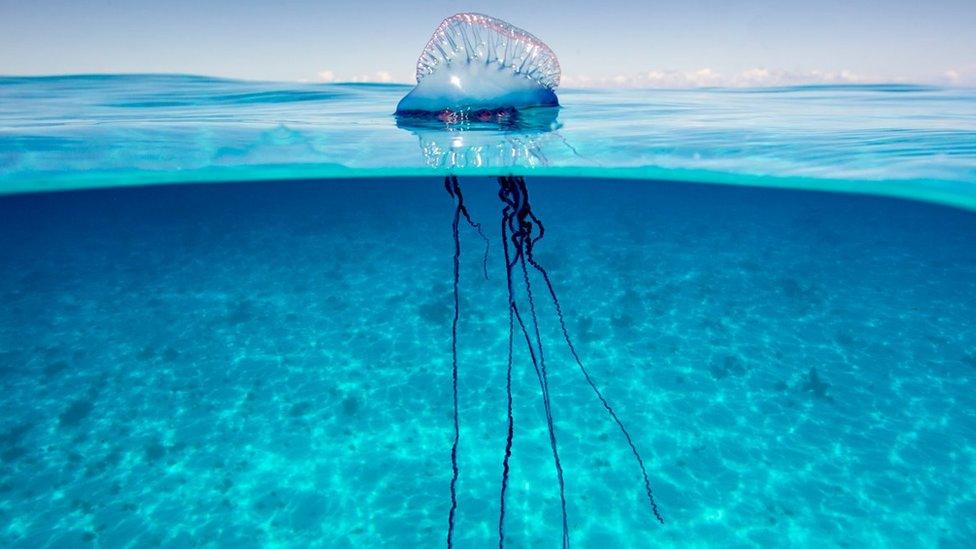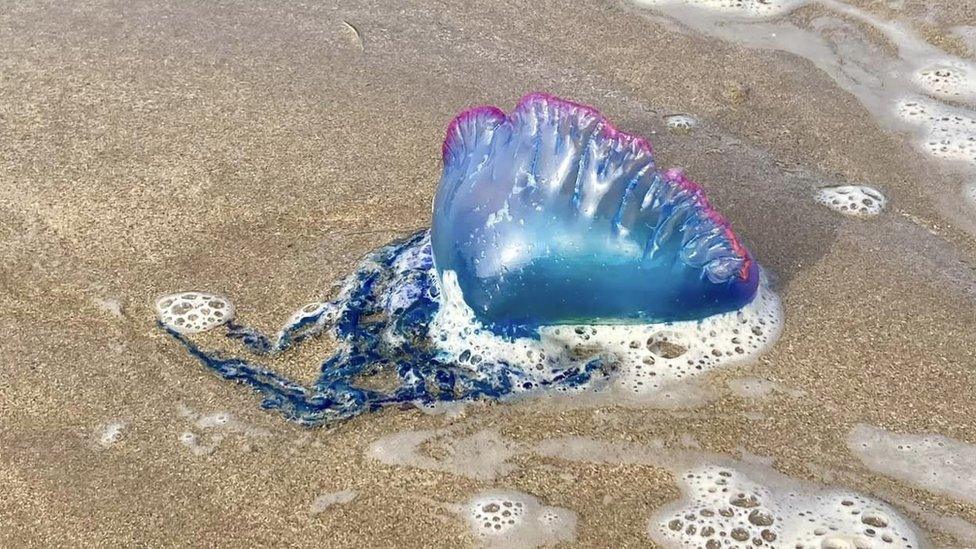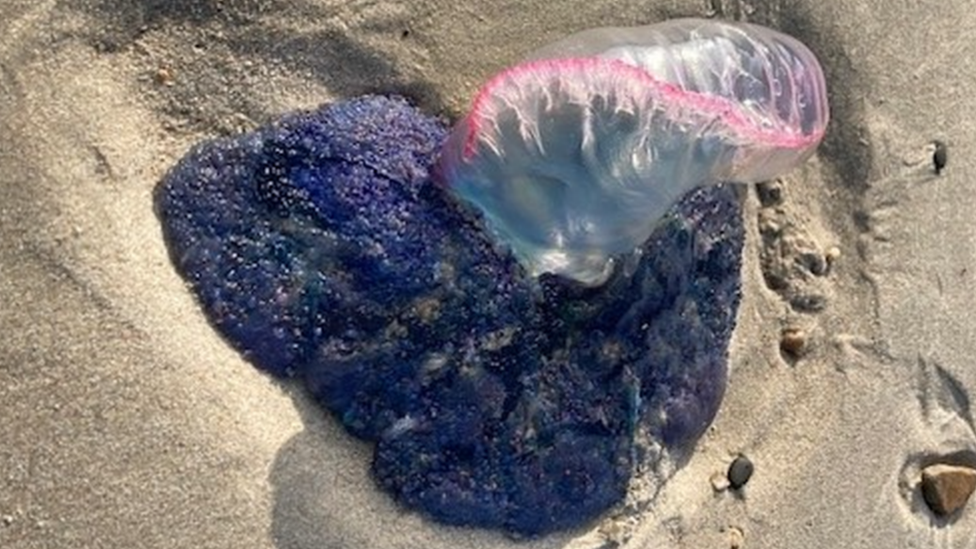Portuguese man o' war: Sightings more likely amid warmer seas
- Published

A Portuguese man o' war was found washed up on Porth Dafarch beach, Anglesey
Climate change is likely to result in larger tropical sea creatures washing up on UK beaches more often, a marine expert has said.
A Portuguese man o' war, normally seen in tropical waters, was found on Porth Dafarch beach, Anglesey, this week.
John Whitaker, who stumbled across the creature on a dog walk, said it was the first he had ever seen.
Anglesey Sea Zoo has said they have washed up in the past but this one was bigger than usual.
Often mistaken as a jellyfish, another of these siphonophores washed up on a Jersey beach in September.
"I had to make sure the dog didn't get his nose too close," said Mr Whitaker.
"It's the first time I'd seen one up here, usually the water is too cold."
The change in water temperature is a factor, as Anglesey Sea Zoo's Frankie Hobro explained on BBC Radio Wales' Phone In Show on Thursday.

The tentacles of this jellyfish-like creature can be as long as 10ft (3m)
"We do occasionally see Portuguese man o' war washed up, this one looks like it's a little bit bigger than the ones we've had in the past," she said.
"Sea temperatures just now are starting to drop a little bit.
"They were at their highest a month ago and with the changing weather patterns increasing overall sea temperatures all around the UK we are likely to see more of these species that are considered to be tropical - not just more often but larger as well."
Portuguese man o' wars live on the surface of the water and they are a type of animal that is made up of a colony of organisms working together.

The man o' war found on Anglesey is bigger than usual, said Frankie
"They are quite obvious even from a distance," added Ms Hobro.
"They have this very large float on the surface and the tentacles can actually go down to one, two or even three metres (3 to 10ft) in length underneath them in the water."
She added although they were not deadly to humans, they were best avoided.
"While I was working in the tropics, several years before I came here and bought the business it was this classic scenario where it was being washed around in the surf.
"I was standing in the surf and it wrapped itself around my ankle.
"It was very painful, it takes several weeks to recover from the marks of the sting that it leaves, it's not pleasant."
Related topics
- Published1 September 2023
